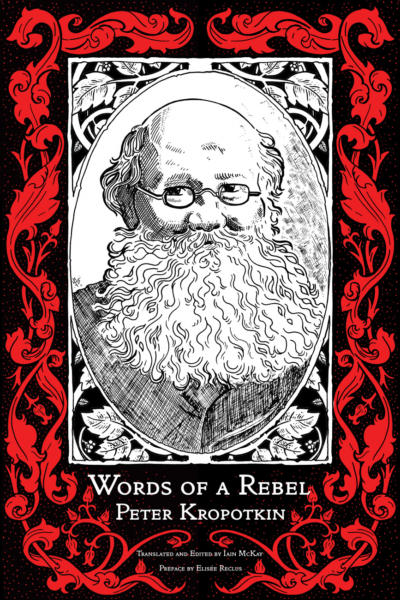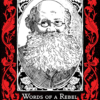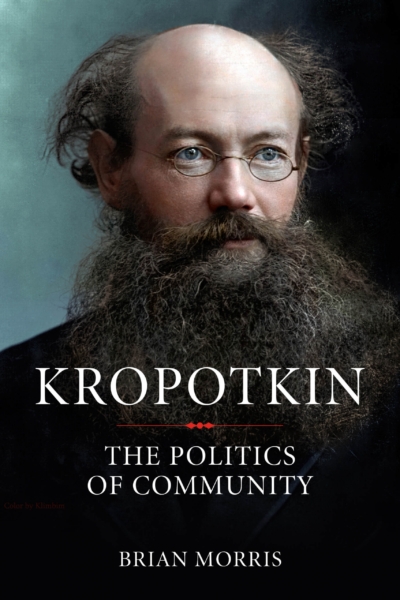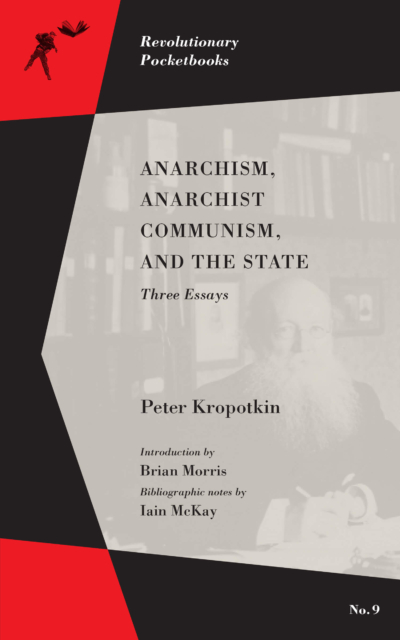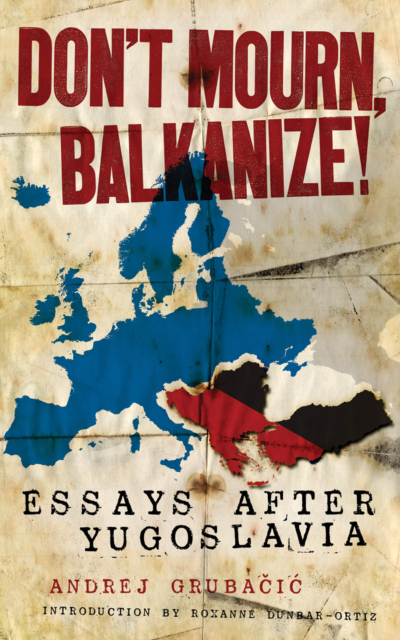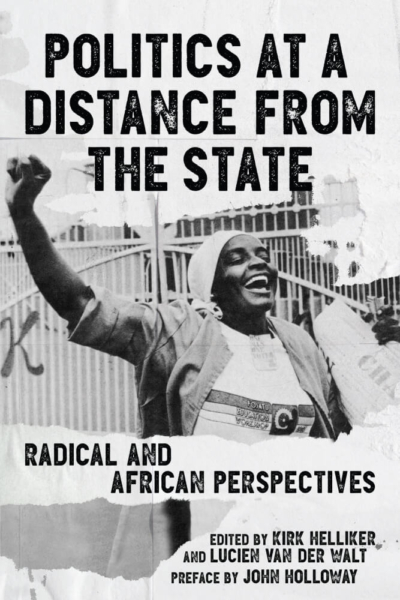Peter Kropotkin remains one of the best-known anarchist thinkers, and Words of a Rebel was his first libertarian book. Published in 1885 while he was in a French jail for anarchist activism, this collection of articles from the newspaper Le Revolté sees Kropotkin criticise the failings of capitalism and those who seek to end it by means of its main support, the state. Instead, he urged the creation of a mass movement from below that would expropriate property and destroy the state, replacing their centralised hierarchies with federations of self-governing communities and workplaces.
Kropotkin’s instant classic included discussions, themes, and ideas he returned to repeatedly during his five decades in the anarchist movement. Unsurprisingly, Words of a Rebel was soon translated into numerous languages—including Italian, Spanish, Bulgarian, Russian, and Chinese—and reprinted time and time again. But despite its influence as Kropotkin’s first anarchist work, it was the last to be completely translated into English.
This is a new translation from the French original by Iain McKay except for a few chapters previously translated by Nicolas Walter. Both anarchist activists and writers, they are well placed to understand the assumptions within and influences on Kropotkin’s revolutionary journalism. This volume compiles the original 1885 text, the preface to the 1904 Italian edition, and the preface and afterword to the 1919 Russian edition, along with numerous articles on the labour movement by Kropotkin for Le Revolté that highlight how he envisioned moving from criticism to a social revolution. With a comprehensive glossary and an introduction by Iain McKay placing this work within the history of anarchism as well as indicating its relevance to radicals and revolutionaries today, this is the definitive edition of an anarchist classic.
Praise
“Peter Kropotkin was a giant of socialist history whose tireless scientific, historical, and political scholarship and agitational writing united and fueled the transnational anarchist movement of the turn of the twentieth century. But this aristocrat turned revolutionary didn’t start there. Words of a Rebel sheds light on the young Kropotkin’s political transformation in the wake of the destruction of the First International. By including articles from Le Revolté, this volume traces Kropotkin’s political journey farther as he sewed the early seeds of anarchist communism and set an agenda for anti-authoritarian rebellion for years to come.”
—Mark Bray, author of Antifa: The Anti-Fascist Handbook and coeditor of Anarchist Education and the Modern School
“Words of a Rebel, Kropotkin’s first book, is significant not only for its place in the development of the thought of that towering figure, but also for the many insights it gives into the nature of the European revolutionary movement of his time. Most of the texts, which include several of his most famous essays, appeared originally in Le Révolté (1879–1882), the most important anarchist publication of the period, and other historically valuable documents are appended. These writings reveal Kropotkin as a deeply engaged revolutionary, and show him emerging as a major visionary social thinker.”
—John P. Clark, author of The Impossible Community and Between Earth and Empire
“Kropotkin’s Words of a Rebel is still one of the best introductions to anti-parliamentary socialism, communalism, revolutionary action, state repression, and the illusions of representative government.”
—Ruth Kinna, author of The Government of No One: The Theory and Practice of Anarchism
“Peter Kropotkin was one of the most important and underrated thinkers of the late 19th and early 20th centuries who influenced mass movements all over the world from Russia to Switzerland to Japan, Spain, China, and beyond. This new edition of Words of a Rebel will undoubtedly bring his ideas to a new audience. And there is no one better placed than Iain McKay, with his encyclopedic knowledge and understanding of anarchism, to translate and put these ideas in context for modern movements.”
—Working Class History
“One hundred years ago, Peter Kropotkin’s death occasioned the last public gathering of anarchists in Russia for over six decades. Today his revolutionary yet commonsense ethics have come to life again, resurrected by the widespread embrace of mutual aid during the pandemic. But Kropotkin also still has much to say, always with gentle care and strong principles, about the twin disasters of capitalism and the state, and in contrast, the promise of liberatory transformation via confederal forms of self-organization. So don’t just mourn this dead anarchist; use the words of a rebel as inspiration to fight like hell for the living!”
—Cindy Milstein, author of Anarchism and Its Aspirations
Book details:
Author: Peter Kropotkin • Translated and Edited by Iain McKay • Preface: Elisée Reclus • Additional Translation: Nicolas Walter
Series: PM Press
ISBN: 9781629638775
Published: April 2022
Format: Paperback
Size: 6×9
Pages: 416
Subjects: Anarchism
About the Contributors
Peter Kropotkin (1842–1921) was the foremost theorist of the anarchist movement. Born a Russian Prince, he rejected his title to become a revolutionary, seeking a society based on freedom, equality, and solidarity. Imprisoned for his activism in Russia and France, his writings include The Conquest of Bread; Fields, Factories, and Workshops; Anarchism, Anarchist-Communism, and the State; Memoirs of a Revolutionist; and Modern Science and Anarchism. New editions of his classic works Mutual Aid: A Factor of Evolution; Words of a Rebel; and The Great French Revolution, 1789–1793 will be published by PM Press to commemorate his life and work on the centennial of his death.
Iain McKay is an independent anarchist writer and researcher. He was the main author of An Anarchist FAQ as well as numerous other works, including Mutual Aid: An Introduction and Evaluation. In addition, he has edited and introduced Property Is Theft! A Pierre-Joseph Proudhon Anthology; Direct Struggle Against Capital: A Peter Kropotkin Anthology; and Kropotkin’s 1913 book, Modern Science and Anarchy.
Elisée Reclus (1830–1905) was a renowned French geographer, writer, and anarchist. He produced his nineteen-volume masterwork La Nouvelle Géographie universelle, la terre et les hommes (“Universal Geography”), over a period of nearly twenty years (1875–1894), which was coedited by John P. Clark and Camille Martin into Anarchy, Geography, Modernity: Selected Writings of Elisée Reclus (PM Press, 2013). In 1892 he was awarded the prestigious Gold Medal of the Paris Geographical Society for this work, despite having been banished from France because of his political activism.

